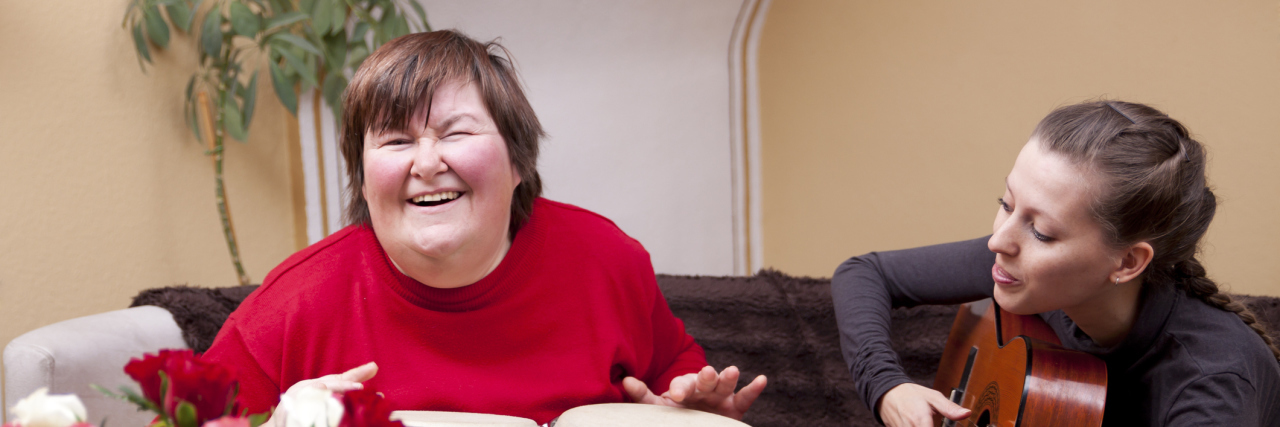Acknowledging the Emotions of Parenting a Child With Disabilities
The journey of the family of someone with disabilities can be a bittersweet one. The grief cycle keeps spinning and sadness can hit out of left field, but so can joy, even at the simplest things. Through personal experience, I have learned that moments of sorrow can be balanced with times of happiness
Caring for someone who has no ability to speak or communicate with words can be disheartening. When someone is unable to speak or use a communication device, it can be frustrating for both the caregiver and individual without communication skills. Looking for cues in demeanor, reading sounds such as crying or moaning and facial expression are ways to narrow the possibilities of needs unable to be expressed in a way others can understand. Happiness, of course, is easy for the caregiver to see. Seeing a smile or hearing laughter can erase the sorrow and frustration of not understanding what is wrong at other times.
Major life events, such as a graduation and milestone birthdays can bring a sad feeling for the lifelong caregiver. They might feel sad for the childhood not lived in a typical manner by the graduate. They might feel like they and their child missed out on the fun of getting a driver’s license, visiting colleges and agonizing over broken hearts. It is important for them to remind themselves that if childhood was filled with other “typical” experiences such as participating in Scouts, school performances, meeting goals and social activities, then graduation is a joyous culmination of those.
Lifelong caregivers might feel sorrowful when post-graduation does not look the same as it does for peers or siblings of the now adult child. Instead of college or a job and moving out on their own, they may be attending adult day care and living at home or in a group home. Even when the program and staff are wonderful, there can be feelings of grief because the dreams a parent had for their child when they were born are not being realized. However, even if the details of life are quite different from those dreams, if their adult child is happy, welcomed by peers, has a variety of social opportunities such as attending parties, family celebrations and outings with friends, being are safe and content — they are having a good life. If a parent can focus on those positives they can feel more joy than sorrow.
In spite of the bitter-sweetness of the journey of a family impacted by disability, I believe it can be overall a joyful one. Learning to focus on the good, while acknowledging the struggles and occasional sadness, makes for a wonderful life.
Getty image by miriam-doerr

